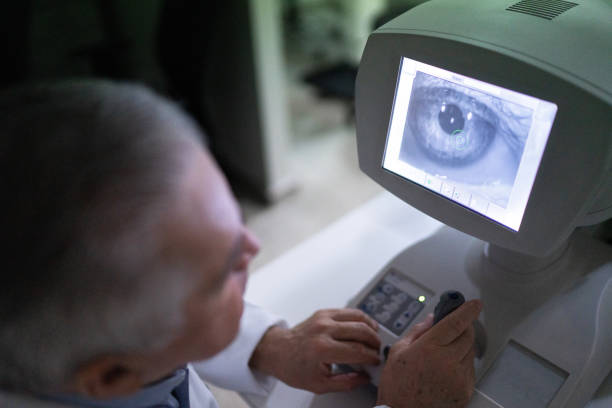Maintaining corneal health is crucial for achieving crystal-clear vision. The cornea, being the transparent front part of the eye, plays a vital role in refracting light into the eye. Any compromise in its health can lead to significant visual impairment. This article will explore essential practices for keeping corneal health in check, as well as preventive measures against common corneal issues.

Understanding the Role of the Cornea
The cornea acts as a barrier against dirt, germs, and other particles that can threaten the eye. It also helps to focus light, playing a crucial role in how we see the world. Any scratches or infections in the cornea can lead to blurred vision or even complete visual loss. Therefore, understanding its importance is the first step toward mastering corneal health.
Common Corneal Conditions
Several conditions can jeopardize corneal health. These range from minor irritations like dry eyes to more severe issues like corneal ulcers or keratitis. The latter can be particularly dangerous as it often results from bacteria or fungi invading the cornea, requiring immediate medical treatment. Awareness of these conditions allows for early intervention and effective management.
Importance of Regular Eye Examinations
Regular eye exams are vital in ensuring optimal eye health. Eye care professionals can detect any changes in corneal health early, allowing for timely intervention. During these examinations, they will usually assess not just the cornea but the entire visual system. A good practice is to schedule comprehensive eye exams every year or as recommended by your healthcare provider.
Proper Contact Lens Hygiene
Incorrect use and care of contact lenses can lead to severe corneal issues. Always wash your hands before handling your lenses and follow the prescribed cleaning regime. Using lenses beyond their intended duration can introduce harmful bacteria into the eye, resulting in infections. Remember that maintaining hygiene is crucial for long-term corneal health.
Managing Dry Eye Syndrome
Dry eyes can be a significant risk factor for corneal complications. This condition occurs when your eyes do not produce enough tears or when the tears evaporate too quickly. Symptoms can include a gritty sensation in the eyes, redness, and increased sensitivity to light. If untreated, dry eyes can lead to inflammation and damage to the corneal surface. Managing this condition can involve using artificial tears or consulting an eye care professional for additional treatments.

Protective Eyewear and Environment
Protective eyewear should be a staple in every household, especially for those involved in sports or activities that put the eyes at risk for injury. Sunglasses that block UV rays are equally important, as prolonged sun exposure can damage the cornea and lead to conditions like cataracts over time. Furthermore, be mindful of your environment. Dusty places can increase the risk of corneal irritation or infection, so using protective eyewear can help mitigate these risks.
Diet and Corneal Health
What you eat has a direct impact on your overall eye health, including the cornea. Nutrients like Omega-3 fatty acids are known to help alleviate dry eye symptoms and support tear production. Foods rich in Vitamin A (like carrots) contribute to better eye health overall. A balanced diet that includes a variety of fruits, vegetables, and healthy fats can significantly contribute to corneal well-being.
Corneal Infection Solutions
In regions such as Ohio, where seasonal allergies may exacerbate eye issues, it is important to implement solutions regarding corneal infections. Many healthcare providers focus on educating patients about the importance of early symptom identification. If residents of Ohio experience persistent symptoms like redness, discomfort, or changes in vision, seeking expert solutions quickly can prevent severe outcomes. For corneal infection solutions in Ohio - Visit us today.
Conclusion
Mastering corneal health is essential for achieving and maintaining crystal-clear vision. By emphasizing the importance of regular examinations, practicing good hygiene, protecting the eyes from harmful environments, and maintaining a balanced diet, you can significantly reduce the risk of corneal issues. Remember that early intervention and awareness are key to avoiding severe complications. Should any symptoms arise, particularly concerning corneal infections, look to local resources such as Ohio Corneal Infection Solutions for tailored assistance. By taking these proactive steps, you can ensure that your eyes remain as healthy as possible for years to come.